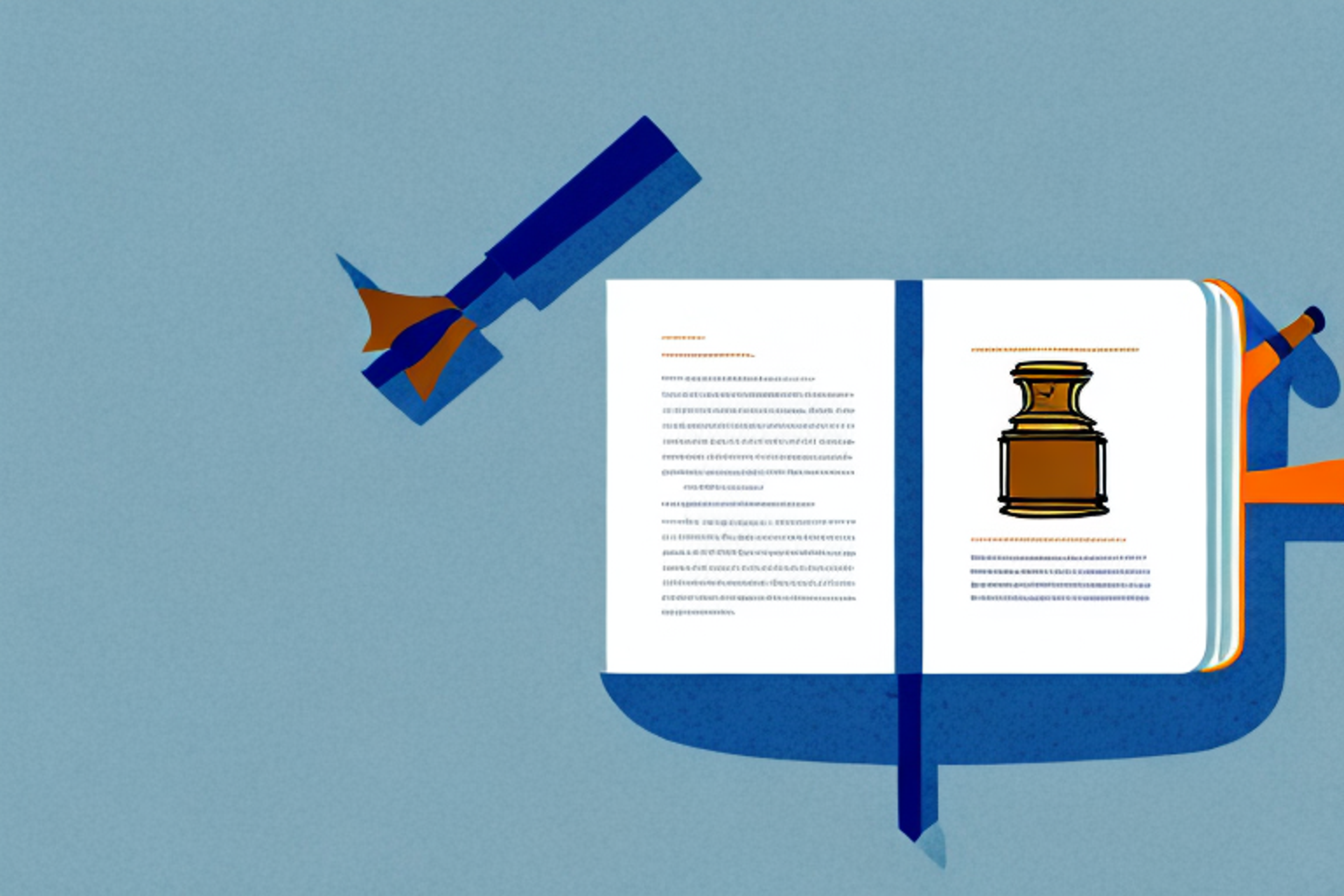Law School Interviews: Questions, Answers & Expert Tips
Ace your law school interview with confidence! Discover expert tips, common law school interview questions, and sample answers to help you stand out.

By Indrani S.
Partner with a former Stanford Law School Admissions Officer!
Posted November 6, 2025

Join a free event
Learn from top coaches and industry experts in live, interactive sessions you can join for free.
Table of Contents
Getting the interview means you’re in the running. That’s a huge win. Now, it’s about closing strong. Law school interviews can feel high-stakes, especially when you're applying to top schools like Yale, Columbia, or Northwestern, where the interview may be the last thing standing between you and an offer. But the truth is, with the right preparation, you can walk in feeling clear, confident, and ready.
As a former Associate Director of Admissions at Stanford Law School, I have read thousands of applications and have a deep understanding of what top law schools are looking for. More than just ‘standing out,’ applicants must craft a highly compelling story to convince admissions committees of their potential, and they do that across every part of the application. Over the years, I have professionally coached 80+ applicants, helping them secure admission to top institutions such as Columbia Law, NYU Law, and the University of Virginia School of Law.
This guide covers everything from the most common law school interview questions to polished sample answers and practical prep advice, so you can show up like the future lawyer you are.
Read: How to Get Into Law School: Advice From an Expert
Do All Law Schools Conduct Interviews?
Not all law schools interview applicants, but a growing number do, especially among the T14 and international programs. Knowing which law schools interview is a key part of your application strategy.
Interviews may be required for anyone considered for admission, optional, invite-only, video (with a platform like Kira) or with a ‘live’ person who may either be an admissions officer or alumnus. If you are invited to interview, even if it is optional, you should strongly consider going through with it because it will look poorly if you decline the invitation.
Schools that frequently interview include:
- Harvard Law School
- Yale Law School
- Columbia Law School
- Cornell Law School
- Oxford and other international programs
These interviews may be evaluative (affecting your admission outcome) or informational. Some schools conduct alumni interviews, while others use video platforms or panel interview formats.
Expert Tip: Make a list of the schools you’re applying to and confirm whether they interview, and if so, what type of interview format they use.

T14 Law School Interview Question Bank
All the most commonly asked interview questions at T14 programs compiled into one guide.
Why Law School Interviews Matter
A strong law school interview gives you a valuable opportunity to go beyond your written application and show the admissions team who you are as a three-dimensional future lawyer. It’s your chance to articulate why you want to study law, how you’d contribute to the law school community, and what your career aspirations are. More importantly, it allows you to demonstrate key soft skills like clear communication, strong legal reasoning, and confident presence that aren’t always obvious on paper.
Most law schools use interviews to assess whether applicants are a good fit with the school’s values and culture. For others, it's a way to gauge “intangibles” like your personality or emotional intelligence not easily found in your personal statement or application materials.
A good law interview can tip the scales in your favor, especially if you're a borderline admit, scholarship applicant, or aiming to attend a highly selective program like Harvard Law.
Common Law School Interview Questions
Every school is different, but most interviews include a variation of these common law school interview questions:
- Why do you want to attend law school?
- When did you decide you wanted to become a lawyer - what inspired you?
- What is something the admissions committee should know about you?
- Why are you interested in this particular law school?
- Tell us how you will contribute to our school?
- Tell me about a challenge you faced and how you handled it.
- What do you consider your greatest accomplishment?
- How do you handle conflict, stress, or difficult conversations?
- What area of law interests you, and why?
- How do you approach legal issues or debate?
- What’s your academic background, and how has it prepared you for law school?
- What are your future goals in the legal profession?
Don’t be concerned if you feel like you already addressed any of these questions in your resume, essay or other materials. Part of the interview is to assess how articulate you are, and whether your answers are consistent with your application. There will be some redundancy but it’s okay.
Also note that some interviewers will have zero knowledge of you besides your resume or a short summary that is provided to them. (Unless they are actual admissions officers they will not have access to your full application.) Out of all the questions that can possibly be thrown at you, “Why law” and “Why THIS law school” are probably the most common.
Sample Answers to Law School Interview Questions (With Analysis)
1. Why do you want to attend law school?
"I want to attend law school to gain the legal training necessary to navigate, and ultimately help redesign, the systems that shape people’s lives, particularly within criminal justice. My interest began academically: I spent a year researching prosecutorial discretion for my undergraduate thesis, where I saw how incentives embedded in law shape outcomes far more than intent. But it became personal during my internship at the public defender’s office, where I worked with clients whose lives were derailed by structural inefficiencies and inconsistent representation. That experience reframed the law for me – not as a static set of rules, but as a living system that must be interpreted, challenged, and sometimes rebuilt. Long-term, I’m drawn to a hybrid path that blends litigation and policy reform. I want to be in court not just to win cases, but to surface the flaws in our frameworks, and eventually translate those insights into more equitable policy at scale."
Why this works: This answer works because it moves beyond vague aspirations or moral ambition and roots the applicant’s motivation in specific, formative experiences—both academic and personal. The framing of law as a “living system” shows mature, systems-level thinking and hints at a deep intellectual curiosity that top programs like Harvard prioritize. By articulating a hybrid path that blends litigation with policy reform, the candidate demonstrates long-term clarity without rigidity, suggesting the kind of leadership potential elite law schools seek to cultivate.
2. Why this law school?
"I’m drawn to Harvard Law because of its intellectual breadth, interdisciplinary flexibility, and deep commitment to public leadership. The Criminal Justice Institute and the Systemic Justice Project both align directly with my interest in structural reform, but what excites me most is the opportunity to engage with legal questions across frameworks – philosophy, policy, and practice. I recently sat in on a virtual panel with Professor Carol Steiker and was struck by the level of discourse and moral clarity around the death penalty’s constitutional contradictions. I want to be part of a legal community that embraces that kind of rigor and also challenges me to grow as both a thinker and an advocate. Harvard’s scale, its alumni network, and its culture of responsibility to the public good make it the ideal place for me to evolve as someone who hopes to serve at the intersection of law, governance, and impact."
Why this works: This response succeeds because it combines personal fit with concrete institutional knowledge. The mention of programs like the Criminal Justice Institute and a named professor signals authentic engagement, not copy-paste flattery. Rather than leaning solely on prestige, the candidate explains how Harvard’s breadth, intellectual culture, and commitment to public leadership uniquely align with their values and goals, an approach that resonates strongly in competitive interviews. The interviewee seems to have done research beyond just the Harvard admissions website, which shows initiative and commitment.
3. Tell me about a challenge you faced.
"In my junior year, I led a civic engagement organization during a midterm election cycle. Three weeks before our largest voter access initiative, the university cut funding, without notice. I had two choices: scale back or reimagine. I chose the latter. I drafted a new proposal, secured external sponsorship from a local legal nonprofit, and rebuilt the campaign structure on a compressed timeline. Then, 24 hours before our keynote panel, a major partner pulled out. I gathered my team at midnight, reassigned logistics, and personally stepped in to moderate the event. We had over 300 students attend. But more than the turnout, it was the moment I learned how to lead with both agility and calm. I used to think of leadership as clarity of vision – now I see it as clarity under pressure. That shift in mindset has stayed with me, and it’s part of what draws me to law: the need to think fast, communicate clearly, and hold the line when it matters most."
Why this works: This story stands out because it’s specific, stakes-driven, and shows the applicant not just solving a problem, but evolving through it. The reflection on leadership under pressure and the shift in mindset from vision to clarity conveys self-awareness and growth, which are highly valued by admissions committees. By linking the experience directly to skills needed in law – strategic thinking, calm under pressure, persuasive communication – it becomes a compelling argument for both readiness and fit. Note that this response could potentially be used to answer a question about a greatest accomplishment, something you are proud of, or an example of creative problem solving.
How to Prepare for Law School Interview Questions
Understand the School Inside and Out
Before your interview, take the time to deeply research each particular law school. Go beyond basic rankings and website blurbs—dig into the school’s mission, law school community, clinical offerings, journals, and specific courses or centers aligned with your interests. If you're interviewing with Columbia Law School, for example, be ready to talk about the Human Rights Institute or its international externships. If it’s Harvard Law School, you might reference a faculty member’s scholarship or a recent Supreme Court case they’ve analyzed. Knowing the school’s values, recent news, and academic focus areas allows you to connect your goals to their curriculum and culture. This level of specificity is what impresses the law school admissions committee and what makes your interest feel authentic. One way to get details and specifics that may not be easily found on the web is by talking to people that have attended the school you are going to interview with. You can join your college LinkedIn alumni network and do some research into alums, where they went to law school, what they are doing now, etc. By talking to them, you may gather some pearls of wisdom you can bring up during your interview.
Practice with Mock Interviews
The best way to build confidence is through repetition. Set up mock interviews with a friend, mentor, or admissions coach. Record your responses so you can assess your tone, pace, and whether your answers feel natural or over-rehearsed. Mock interviews also help you get comfortable with different interview formats—from live Zoom conversations to timed video responses. Practicing aloud helps clarify your thinking and reduces the risk of rambling or freezing mid-answer.
Polish Your Delivery
Your ideas matter, but how you communicate them matters just as much. The admissions committee is evaluating your ability to express yourself clearly, think critically, and remain composed under pressure, all essential qualities for a future lawyer. Focus on steady eye contact, confident posture, and calm tone. Avoid sounding robotic; instead, treat the interview like a thoughtful conversation. Schools want to see that you’re not just smart, but someone they can envision thriving in seminars, clinics, and the broader law school community. Remember to breathe, and smile!
Prepare Thoughtful Questions to Ask
Nearly every interviewer will give you a chance to ask questions at the end, and this is where many law school applicants stumble. Don’t just ask generic questions you could Google. Instead, ask about a recent curricular change, how students engage with the legal profession outside the classroom, or how the school supports scholarship applicants and diverse perspectives.
Think of questions about topics that really matter to you. This part of the interview is your opportunity to gather data to help you make your decision about where to attend law school. For example, if you ask about professors who will be on sabbatical, the answer may affect your final decision. Thoughtful questions show curiosity, preparation, and genuine engagement. They also help you assess whether this is the right environment for you.
Reflect on Your Application Materials
Review your personal statement, resume, and transcript before the interview. Interviewers may ask you to elaborate on experiences you’ve mentioned or explain gaps or inconsistencies. Be ready to discuss your academic background, internships, leadership roles, and anything else that gives insight into your readiness for law school. You should also be prepared to connect your past experiences to your future goals—whether that’s becoming a good lawyer in a public interest setting, working at a law firm, or influencing policy.
Mistakes to Avoid During a Law School Interview
Your interviews can be undermined by giving vague, overly rehearsed, or impersonal responses. Interviewers are looking for authenticity, clarity of thought, and a genuine connection to their program – not a memorized script that could be recited to any school. Failing to reference the school’s unique offerings, values, or faculty can signal a lack of preparation or interest, especially in a competitive pool where specificity matters.
Also avoid sidestepping difficult questions, such as explaining a low GPA or gap in your résumé; instead, address them directly with maturity and reflection.If you stumble during the conversation, don’t spiral: acknowledge it with poise, correct yourself if needed, and keep moving forward. Confidence, humility, and clarity will carry you further than perfection. Don’t forget to send a thoughtful thank you note at the conclusion of your interview. This will help smooth over any negative impressions you may have made, will keep you memorable, and give you an opportunity to clarify responses to questions that you didn’t feel you answered well.
Which Law Schools Require Interviews?
| Law School | Interview Type | Interview Format | Required for Admission? | Additional Notes |
|---|---|---|---|---|
| Harvard Law School | Invitation-only | Live via Zoom | Yes | Required for all serious candidates; part of holistic evaluation |
| Yale Law School | Invitation-only | Live via Zoom | No | Reserved for select applicants; not required for admission |
| Columbia Law School | Invitation-only | Live via Zoom | No | Limited pool of applicants are invited |
| University of Chicago Law | Invitation-only | Live via Zoom | Yes | Required for all serious candidates |
| NYU Law | Invitation-only | In-person or Zoom | No | Mostly for waitlisted and scholarship applicants |
| Penn Carey Law | Invitation-only | Live via Zoom | No | Only for named scholarships and Early Decision applicants |
| Michigan Law | Invitation-only | Zoom or in-person | No | Required only for Darrow Scholarship finalists |
| Berkeley Law | Invitation-only | Zoom or in-person | No | Required for BLOS scholarship finalists |
| UVA Law | Invitation-only | Zoom or phone | No | Most admitted students are interviewed |
| Duke Law | Optional for admitted students | Zoom | No | Required for financial aid/scholarship consideration |
| Northwestern Law | Strongly encouraged | Kira (recorded) | No | Open to all applicants; part of holistic review |
| Cornell Law School | Invitation-only | Kira (recorded) | No | Used in admissions for select applicants |
| Georgetown Law | Invitation-only | Alumni or group interview | No | Group interviews led by Dean Cornblatt available |
| UT Austin Law | Invitation-only | Recorded | No | Encouraged but not required |
| UCLA Law | Invitation-only | Zoom or in-person | For scholarships | Required for Achievement Scholarship finalists |
| Vanderbilt Law | By applicant request (before Nov 1) | Zoom or in-person alumni | No | Encouraged but not mandatory |
| WUSTL Law | Invitation-only | Live via Zoom | Yes | Required for all interviewed applicants |
| USC Gould School of Law | Invitation-only | Zoom or in-person | No | Especially used for named scholarships |
| Minnesota Law | Encouraged | Kira (recorded) | No | Strongly encouraged for all applicants |
| Notre Dame Law | Invitation-only | Virtual | No | Used for deeper evaluation |
| UC Law San Francisco | Optional | Virtual | No | Encouraged to connect with an admissions officer |
| George Mason Law | Invitation-only | In-person or virtual | No | Select applicants only |
| Wake Forest Law | By request | In-person or virtual | No | Applicant-driven interview process |
| Wisconsin Law | Invitation-only | Virtual | No | Limited use |
| Colorado Law | Invitation-only | Virtual | No | Select applicants only |
| Washington and Lee Law | Invitation-only | In-person or virtual | No | Used for waitlisted applicants |
| Baylor Law | Optional | In-person or Zoom | No | Open sign-up for interviews |
| Maryland Carey Law | Invitation-only | Zoom or phone | No | Strongly encouraged if invited |
| Utah Law | Invitation-only | Zoom | No | Encouraged for waitlisted and selected applicants |
| Villanova Law | Invitation-only | In-person | No | Select interview use only |
| St. John’s Law | Optional | Recorded | No | Available to all applicants |
| Lewis & Clark Law | Invitation-only | In-person, virtual, or phone | No | Strongly encouraged if invited |
My Expert Tips
If you are invited to an optional interview - I strongly encourage you to do it. If you decline, you are missing an amazing opportunity to bring a third dimension to your application. The AdCom will be able to envision you in the classroom, walking the halls, making a positive impact on the community–adding color to your profile that your resume, letters of recommendation and even your essays just can’t do. For help thinking through your strategy, answers, and anything else, I'm here to help! Book a free intro call on my coach profile to get started.
Final Thoughts
A successful law school interview is about preparation, reflection, and the ability to communicate like a future legal professional. By preparing for common law school interview questions, understanding which law schools interview, and practicing authentic delivery, you’ll walk into that call with clarity and confidence.
Once you’ve got your interview prep down, take a step back and make sure the rest of your application supports the story you want to tell. From your personal statement to your school list, everything should align with your goals and strengths as a future law student.
Read these next:
- Acceptance Rates & Class Profiles of the T14 Law Schools
- Everything You Need to Know About LSAC and the CAS Report for Law School
- LSAT vs GRE for Law School - Which to Take and How to Ace Both
- Law School Application Deadlines (T20 Programs)
Law School Interview FAQs
What should I wear to my law school interview?
- Assume that business attire is most appropriate. You don’t necessarily have to wear a formal business suit, but if you are comfortable in one, it’s fine. Most men wear dress slacks and button downs (with or without a tie), and women opt for a skirt suit, or professional dress or skirt/top with closed toed shoes. Avoid flashy jewelry and make-up.
What is the best way to practice for questions like, “Why do you want to go to law school?”
- For questions that are very common, you should definitely prepare in advance, but it’s important not to sound overly rehearsed or robotic. Instead of writing a paragraph and memorizing it (or reading it for a remote interview), prepare bullet points that hit all the notes to keep you on track without every word you will actually say as you respond. This way you won’t forget your key points but will sound much more relaxed and articulate.
If I am asked to interview, is that a sign that I will be admitted?
- Unfortunately you cannot count on being admitted if you are interviewed, but you can look at it as a positive sign. For schools that interview by invitation only, you have passed one milestone because they wouldn’t ask you to interview if they didn’t see your potential. Your interview may tip the scales in your favor, so it is imperative to take it seriously, prepare as well as you can, dress well, and make an amazing impression.

Written by Indrani
5.0
(153)
I am a Silicon Valley native, with extensive experience at Stanford University, who has practiced as an admissions coach for over a decade. I pride myself on building strong rapport with my clients, using a warm approach and sense of humor. I am a true wordsmith, working with my clients to refine their message and build a package that best represents them. My clients become confident they are putting their best foot forward, and get results! Applying my liberal arts education and masters in counseling, I am able to distill the essence of even the most uncertain client through a collaborative process of interview, coaching, conversation, writing, and polishing the final product. From admissions essays, addenda, resumes to diversity statements, I empower my clients to face the common discomfort of self-reflection until they are able to tell their own unique story. I am also an expert at crafting well-balanced school lists, assessing who to write letters of recommendation, highlighting strengths while minimizing perceived weaknesses, interview prep, negotiating scholarship offers and more--everything one will need when embarking upon the overwhelming process of applying to law school.
Indrani has helped clients get into organizations like:
Browse hundreds of expert coaches
Leland coaches have helped thousands of people achieve their goals. A dedicated mentor can make all the difference.


















